Posting Gintoki x Takasugi self-made fanarts #GinTaka #TakaGin #銀高 #高銀
Don't wanna be here? Send us removal request.
Note
Do you think Eiji ever got over Ash's death? I often see people saying he'll mourn him forever, will never be truly happy again and continues to run after people who look like Ash. Idk, in GoL he indeed still tries to cope with it but at the end and especially that last photo of him in NYS tells me he'll be fine for some reason. Of course he'll never forget Ash but I still like to think he won't be depressed forever and while remembering him, he's still able to find some sort of happiness.
Hello Anon! Sorry it took me so long to answer this :“(
GoL happens around 1994, about eight years after the end of Banana Fish, and NYS a few years later, around early 1999.
Call me overly optimistic, but I really do believe that Eiji got over Ash’s death at some point of his life, and the healing process had already begun by the end of GoL.
GoL’s whole plot centered around Eiji and Sing, the two people who were arguably the most affected by Ash’s death. As Sing mentions here :

Eiji changed completely after that incident, and we can all imagine why. It’s not easy to pack up a whole lifetime’s worth of memories you experience in the space of two years into a neat little package and store it away, and we see how Eiji and Sing both are coping with the same issue, but in different ways.
After the harsh confrontation and tense conversation that they have at the end in Cape Cod about Ash’s death, about the guilt they both are harbouring about the whole thing, I think Eiji realised what was holding him back : his wish to never let Ash go, to never share Ash’s memories with the rest of the world, in a way, to keep Ash all to himself


.
Ironically, it’s the same thing Sing accuses Ash (addressing his computer as a remnant of Ash’s memories) :

.
Eiji finally takes a step forward by showcasing Ash’s single photo at the end of his exhibition. I think that fact alone is symbolic of him letting go of his pain, of him trying to organise his life around things other than the grief that was his sole anchor point for eight long years.


And as you said, anon, I do think he’ll be able to find peace, even happiness and contentment. And Eiji believes that he will too

In NYS, the last photograph is his self portrait, with his dog, Buddy. And in it, Eiji is smiling. He is shown with short hair, and as I talked about it before, I think he really is trying to get his life back from all the pieces that were left behind.

New York and all the events of Banana Fish left an indelible mark on Eiji, which is constantly reflected on his style of photography, his relationships with his friends and family, and most of all, on himself, as a person.
The dedication to NYS was especially nostalgic to me :

But I think it was a way of Eiji acknowledging his memories, and admitting that while the longing would never really vanish, he’d learn to be okay. Eventually.

362 notes
·
View notes
Text




#snow#gintama#takagin#gintaka#銀高#gintoki hits sugi with a snowball#takasugi gets him after#gintoki#takasugi
15 notes
·
View notes
Text

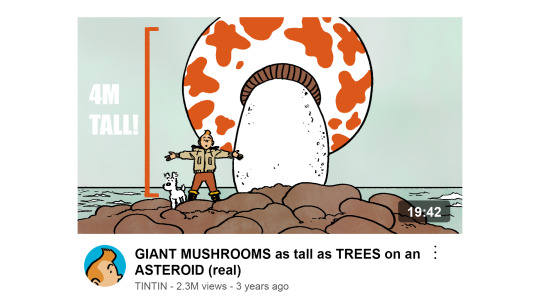
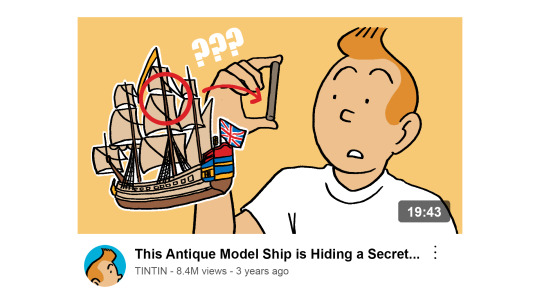
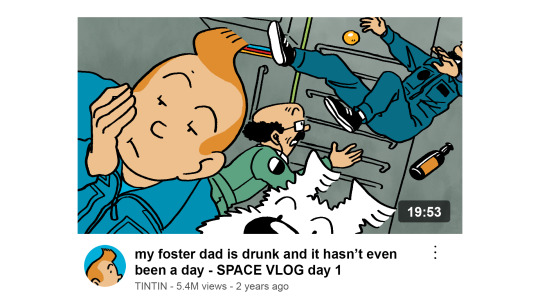
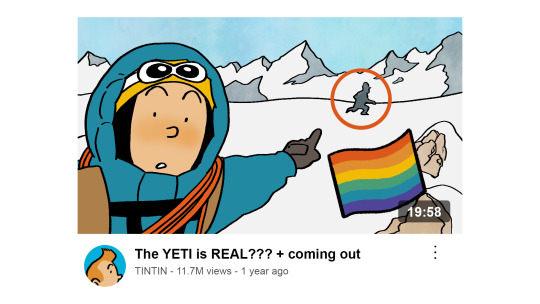
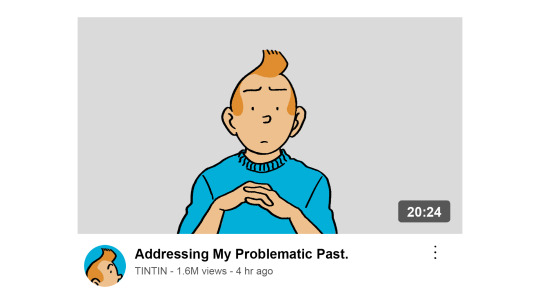
as newspapers today dont tend to hire children, a modern day Tintin would run a clickbait YouTube channel, except the clickbait is 100% real every single time
he starts off as an irritating conservative pundit at 14, meets Chang then leaves the think tank paying him and launches his own independent channel and blows up shortly after. Chang helps with video editing and managing his socials and they often chat on video calls between adventures. Haddock, his foster dad, has absolutely no knowledge of his earlier videos.
26K notes
·
View notes
Photo



Some random scenes with Kiheitai chibs bc I really needed to draw them after last week’s chapter ;;
“Nothin’s changed
‘cause we know the fact that the Kiheitai was born to destroy the world
That the Kiheitai was born in order to save one girl
And that both those things are who we are.”
1K notes
·
View notes
Photo





This is what happens when a snapchat joke goes too far.
RIP Shinpachi’s innocence
@rinrinsamurai
1K notes
·
View notes
Photo

Your man, Shinsaku Takasugi, is here! Start your dangerous romance now! Destined to Love, available on iOS & Android! Download now! iOS: http://goo.gl/vHCTKY GooglePlay: https://play.google.com/store/apps/details?id=jp.co.cybird.appli.android.bks.en&hl=ja
124 notes
·
View notes
Text
This whole scene is pretty wild on its own




But with the added context that THIS is happening at the same place at the same time makes it so much funnier



15 year old Rin almost getting run over by a car meanwhile ReoNagi are doing this

2K notes
·
View notes
Text
So recently, there was this blue lock exhibition where you could be accompanied by either an E4 (isagi/bachira/kunigami/chigiri) or a reonagi/nagireo voice guide. (Full translation for the former here and the latter (+ the actual audio) here)
And the reonagi/nagireo one makes me very :) sane :) actually :)
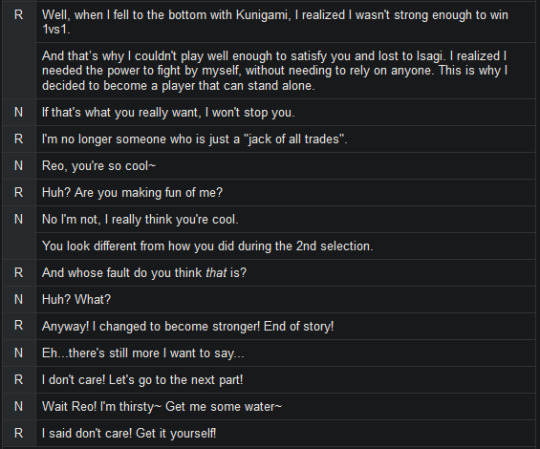
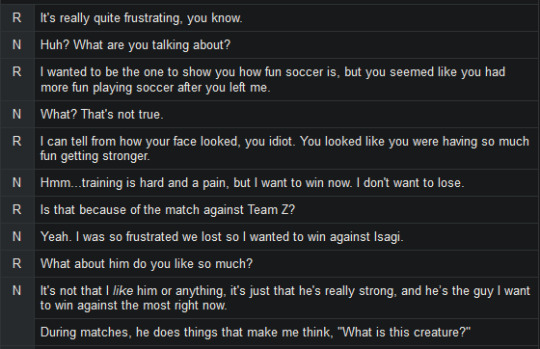
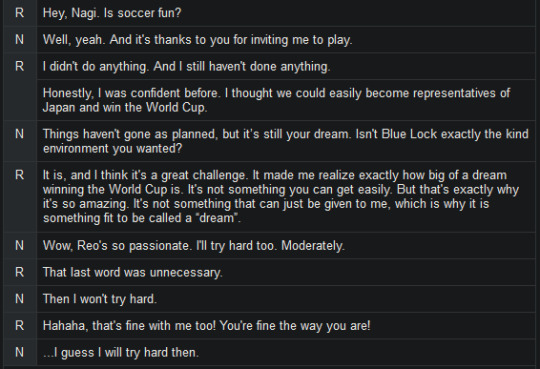
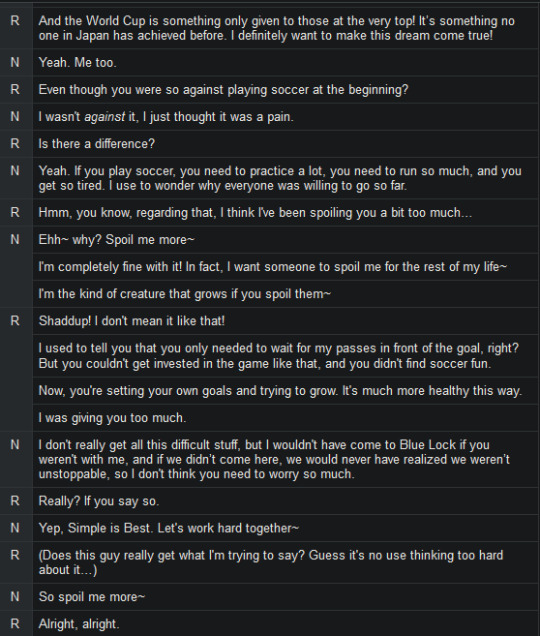

And the fact that this script was supervised by Kaneshiro-sensei himself and thus makes all of this canon...

It's not like I was finally getting over my obsession or anything. This didn't drag me back into reonagi/nagireo hell at all! :)
I also haven't been obsessing over the other stuff that came with the exhibition either. Nope. Nope.
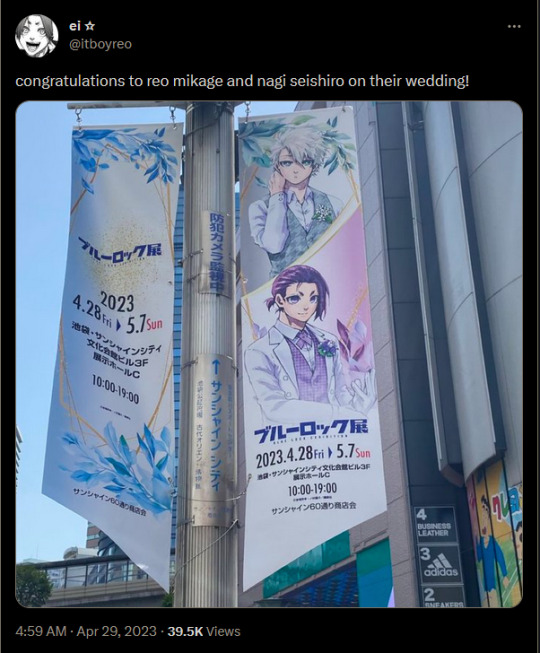

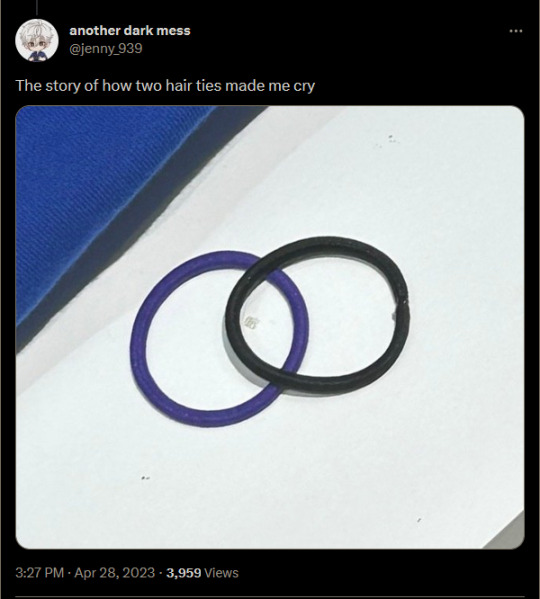


I'm completely chill guys. My life hasn't been ruined and I'm not in shambles at all. I am A-OK.
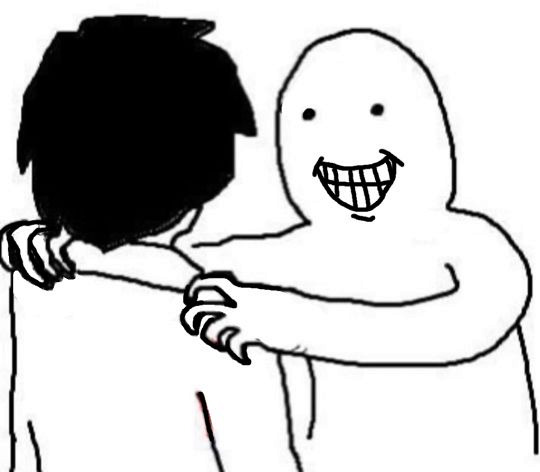
205 notes
·
View notes
Photo




Their catch fight in the live action movie definitely makes it worth watching ✨
493 notes
·
View notes
Text
Gintama Seiyuu Radio Translation: Koyasu Takehito (Takasugi) answers listener’s questions Part III
Whew~ I’m finally done with the whole video :D Enjoy part 3~!
(Link to Part 1 and Part 2)
Radio Hosts: Sugita Tomokazu (Sugi; Gintoki’s VA) and Sakaguchi Daisuke (Saka; Shinpachi’s VA)
Guest: Koyasu Takehito (Koya; Takasugi’s VA)
youtube
Video by 声豚TV【銀魂文字起こし】
13.09
Saka: Next, we have Kitten-chan, who’s a 17-year-old female. Eh~ “Since Koyasu-san is the guest, this is my first time sending a letter. ”
Sugi: It’s Kitten-chan time~ Not after a few years, but is this first time?
Saka: This is the first kitten-chan. Eh, “Between Koyasu-san and the Takasugi Shinsaku [1] that he acted as-” It’s not Shinsaku, it’s Shinsuke-san. “Are there any similarities? Do you feel that you will be able to get along with Takasugi?”
Koya: Ah~ Me and Takasugi?
Saka: Takasugi.
Koya: Hm~ That’s right, hm, I wonder…
Saka: Does Koyasu-san ever say you want to destroy anything?
Keep reading
74 notes
·
View notes
Text

so crazy.
26 notes
·
View notes
Text
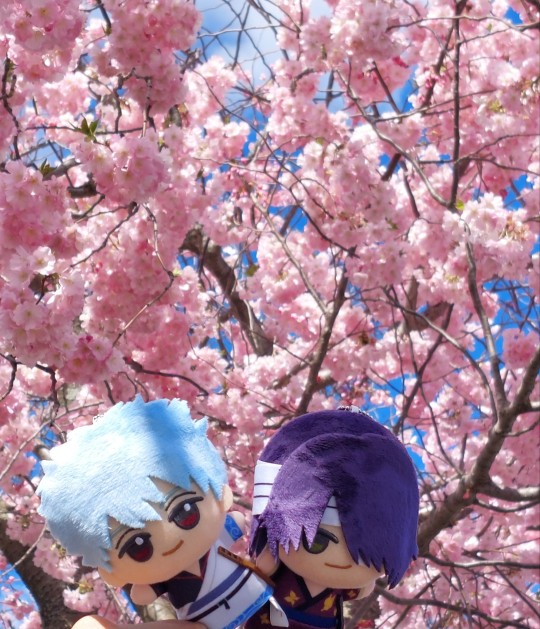
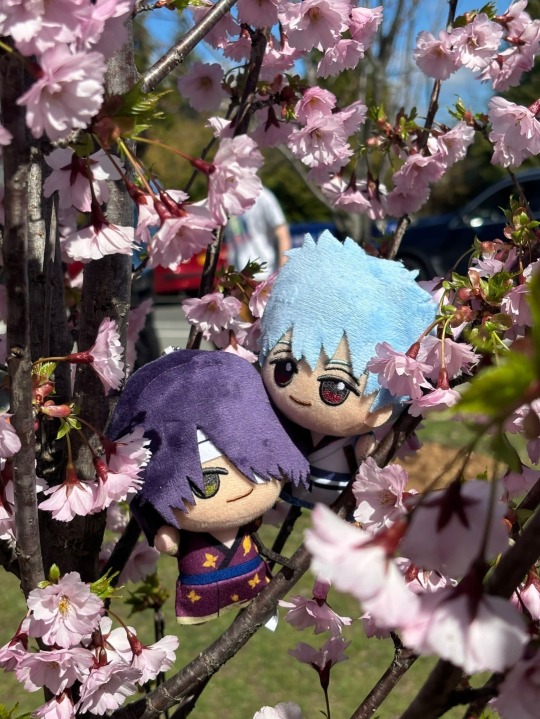

🌸 Spring with GinTaka 🌸
#gintama#gintaka#takagin#銀高#高銀#sakata gintoki#銀魂#高杉#gintoki#takasugi#gintoki x takasugi#takasugi shinsuke#merch#spring#cherry blossom
33 notes
·
View notes
Text

🍓🦋 Petition to make March 10 also GinTaka Day !! (the other halfway mark of their birthdays) 🦋🍓
#gintama#gintaka#takagin#銀高#高銀#sakata gintoki#銀魂#高杉#gintoki x takasugi#shinsuke takasugi#pls i can't wait a whole year :(((
6 notes
·
View notes











